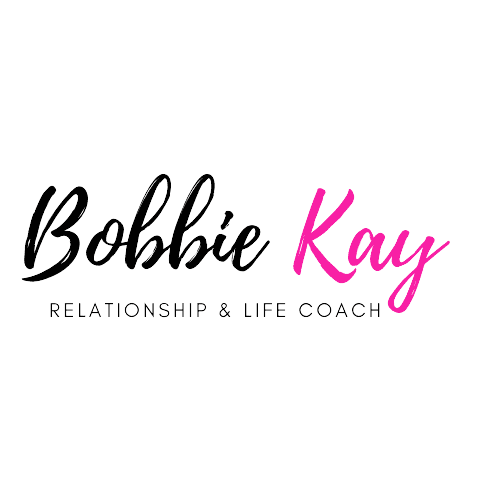For many people, the idea of taking care of yourself can seem downright daunting. If you’re the type of person who constantly puts other people’s needs before your own, it can be hard to learn how to take better care of yourself while still being there for everyone else in your life. But the truth is that you need to focus on taking care of yourself first — otherwise, you won’t have anything left to give to anyone else! Check out this book on Amazon (Empower from Within: Transforming Your Inner Narrative: A holistic overview of Building Self-Esteem)
Take care of your body
When you get sick, it can become difficult to remember that exercise and eating well aren’t luxuries. Your body requires a healthy amount of physical activity in order to function at its peak level. Going for a walk or doing your favorite aerobic exercise will help your body stay healthy. It also doesn’t hurt that exercising releases endorphins and helps relieve stress, which can cause fatigue. Along with working out, eating well is important for self-care because poor nutrition leads to feeling sluggish and lethargic—two things you don’t want if you have a lot on your plate at work or school. Include fruits, vegetables, whole grains, lean meats and low-fat dairy products in your diet. These foods provide essential vitamins and minerals your body needs to keep going strong.
Take time for you
We’re all busy, with full lives and myriad responsibilities. But no matter how much we have going on in our lives, self-care should be a priority. We need time for ourselves so that we can continue to give everything that life demands of us: our best selves. Self-care is something everyone can do, whether it’s making a daily cup of tea or setting aside an hour every night for reading and relaxing. Whatever your method may be, there are many ways you can keep your stress level down and make sure you remain emotionally healthy. It’s not selfish—it’s necessary. You deserve it!
Eat nutritious food
Eating healthily doesn’t have to be complicated. Focusing on nutritious, whole foods that are good for you will make a huge difference in your overall health and how you feel on a daily basis. In fact, it will probably become second nature if you practice it. Plus, eating healthy can save you money over time and fuel your body with vital nutrients for better energy and performance through life’s challenges. Remember: food isn’t just about survival—it’s an important part of living well. Your body deserves only what’s best!
Relax
When we’re feeling stressed, tense, or worried about something, it’s incredibly easy to neglect ourselves—especially when we have a long list of tasks on our plate. Exercise can help reduce tension and ward off negative emotions by releasing endorphins into your bloodstream and boosting positive feelings. Research suggests that regular exercise can even help you sleep better. Make sure you’re getting enough time for self-care by carving out dedicated time every day or scheduling workouts in advance (especially if they are at least 30 minutes long). Treating yourself to a manicure/pedicure, or enjoying some downtime with an activity like journaling may also be helpful. Ultimately, treating yourself well will put you in a better mood and allow you to perform at your peak. So make sure you treat yourself right! After all, you deserve it.
Be active
At any given time, 90% of people are sedentary. Even if we work out regularly, it’s easy to fall into bad habits like sitting for hours at a time, and as a result, we’re hurting our health. Exercise not only gives you an endorphin rush (and who doesn’t want that?), but it can also help you cope with stress and improve your mood. You don’t have to run a marathon—you just need to get off your butt every once in awhile. Walk up stairs instead of taking an elevator or park further away from your destination so you have to walk a bit more. If you sit all day at work, try standing up and walking around for five minutes every hour. If possible, try to be active during lunchtime too! It might feel weird at first, but after a while it will become second nature. The key is getting started: even small changes make a big difference over time.
Get enough sleep
If you’re not getting enough sleep, it can negatively impact your health in a number of ways. First, it puts you at risk for fatigue which can make you feel tired, cranky and unproductive. Second, sleeping poorly means less time in deep REM (restorative) sleep which leaves you feeling even more tired. Third, lack of sleep impacts your immune system. You’re more susceptible to infection if you’re not getting enough zzzs! As if that wasn’t enough reasons to get some rest; studies have also shown that people who don’t get enough sleep are much more likely to suffer from depression and anxiety than those who consistently stay on track with their rest time. So, how do you ensure you get enough sleep? The key is to go to bed at around the same time every night. That way your body gets used to going into sleep mode when it’s supposed to and stays there longer. It’s also important that you limit caffeine intake after 2 p.m., as well as alcohol since both disrupt normal sleep patterns. And finally, be sure to turn off all electronics an hour before bedtime since they emit blue light which messes with melatonin production and makes it harder for us to fall asleep quickly and easily (not only does our body think we’re still awake but we’ll actually start feeling like we ARE awake). So what should I do if I’m not getting enough sleep?
Have positive self-talk
Let go of the negative thoughts
De-stress in your own unique way
